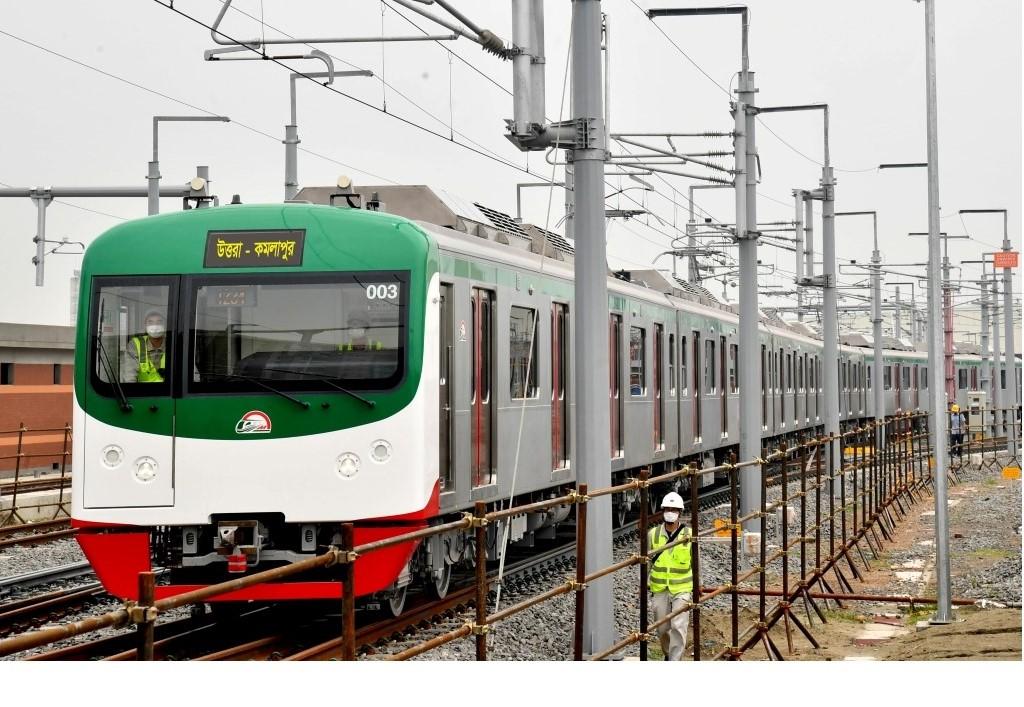South Korea Enters the Race for Bangladesh’s $10 Billion Metro Development
In a strategic push highlighting the critical role of infrastructure in South Asia, South Korea has positioned itself as a formidable contender to win a substantial $10 billion contract for constructing an advanced metro system in Bangladesh. This transformative initiative aims to ease Dhaka’s notorious traffic congestion and support the city’s rapid urban expansion. While China has historically dominated infrastructure projects in Bangladesh, South Korea’s active participation signals evolving regional power dynamics and growing competition for influence through large-scale development ventures. The rivalry between these two nations extends beyond mere business interests, potentially reshaping economic partnerships and geopolitical alignments across Asia.
Technological Strengths and Competitive Approaches of South Korea vs. China
The proposed metro project has sparked intense competition between South Korean conglomerates and Chinese firms eager to secure this landmark contract. Leveraging their extensive experience from metropolitan transit systems like Seoul’s world-class subway network, South Korean companies emphasize cutting-edge technology, efficient urban planning expertise, and sustainable design principles.
Conversely, Chinese enterprises bring to the table their reputation for rapid project delivery combined with cost-effective solutions—a formula that has underpinned numerous successful infrastructure investments throughout South Asia over recent years. Both contenders are not only competing on technical merits but also aiming to deepen strategic ties with Bangladesh by offering comprehensive packages that include local employment opportunities and knowledge transfer.
- High-capacity rolling stock: Trains designed to meet Dhaka’s surging commuter demand.
- Sustainable innovations: Incorporation of green technologies aimed at minimizing environmental impact.
- Integrated transport hubs: Seamless connections with existing bus networks and future transit expansions.
| Main Competitors | Core Strengths |
|---|---|
| South Korea | Pioneering technology; proven urban transit expertise; emphasis on sustainability |
| China | Aggressive timelines; competitive pricing; extensive regional experience in infrastructure delivery |
Tackling Dhaka’s Traffic Woes: The Promise of Modern Mass Transit Solutions
The metro system is envisioned as a vital solution to chronic congestion issues plaguing Dhaka—ranked among the world’s most densely populated cities with over 21 million residents in its metropolitan area as of 2024. By introducing high-frequency trains capable of transporting thousands daily, this project aims not only at reducing commute times but also at lowering vehicular emissions significantly—aligning with global climate commitments such as those outlined by the Paris Agreement.
This infrastructural leap forward is expected to catalyze broader urban renewal efforts including improved road networks around stations, enhanced pedestrian accessibilities like skywalks or underground passages, plus integration with emerging electric vehicle initiatives within Bangladesh’s capital region.
Economic Impact & Regional Infrastructure Growth Stemming from the Metro Project
The $10 billion investment represents more than just an upgrade in public transportation—it stands as a potential economic game-changer for Bangladesh while simultaneously influencing regional development patterns. Key anticipated benefits encompass:
- Sustainable job creation: Employment opportunities spanning construction phases through long-term operations maintenance;
- An influx of foreign direct investment (FDI): This mega-project could attract additional international capital into related sectors such as energy supply chains or telecommunications;
- Eased trade logistics: A modernized transport backbone enhances connectivity facilitating smoother movement within domestic markets;
The ripple effects extend beyond immediate economic gains—stimulating peripheral industries including real estate development near new stations while encouraging public-private partnerships (PPPs) that can accelerate further infrastructural modernization nationwide.
Maximizing Benefits: Strategic Policy Recommendations for Bangladesh Amidst International Bids
Navigating offers from global heavyweights requires astute policymaking by Bangladeshi authorities focused on maximizing socio-economic returns while safeguarding national interests. Recommended strategies include:
- Diplomatic balancing act: Cultivating strong bilateral relations simultaneously with both competitors can enhance negotiation leverage ensuring favorable contractual terms;
- Energizing local industry participation: Pursuing policies mandating involvement of domestic manufacturers boosts employment rates & nurtures indigenous capabilities;
- Total transparency protocols: A clear bidding framework reduces corruption risks thereby increasing investor confidence & public trust alike;
Additionally, sustainability must be central . Mandating adherence to environmental standards during design/construction phases will ensure resilience against climate challenges facing rapidly growing megacities worldwide. Bangladesh should also prioritize agreements facilitating technology transfer so local engineers gain valuable skills enhancing future self-reliance.
To oversee these complex processes effectively, a multi-stakeholder oversight committee comprising government officials, industry experts,& civil society representatives should be established. This body would monitor progress ensuring accountability throughout implementation stages.
Conclusion: Future Prospects Amid Geopolitical Shifts Surrounding Bangladesh’s Metro Endeavor
The intense contest between South Korea and China over this monumental $10 billion metro contract underscores how pivotal infrastructure projects have become instruments shaping geopolitical landscapes across Asia today.
Both countries are leveraging their technological strengths alongside diplomatic outreach efforts aimed at deepening ties within one of the region’s fastest-growing economies.
As decision-makers finalize selections soon,Bangaldesh’s choice will reverberate far beyond its borders,—paving pathways toward new alliances or recalibrated regional balances.
Ultimately, a well-executed metro system promises not only relief from daily commuting struggles but also serves as a beacon signaling Bangladesh’s emergence onto the global stage through sustainable urban innovation. ””
